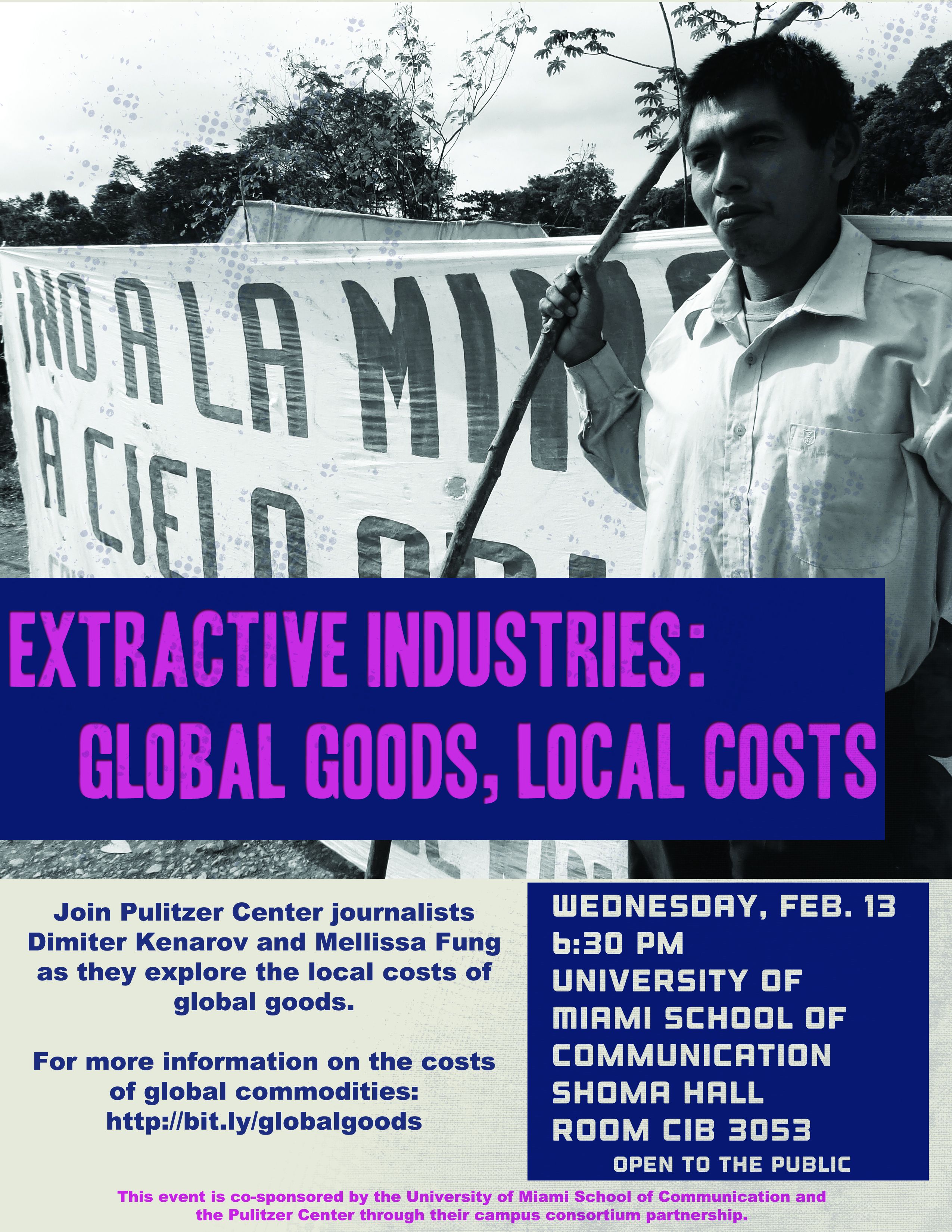Shale gas has been lauded by some as the future of sustainable and independent energy in the United States and Eastern Europe. But acquiring the substance also dredges up its share of controversy. Further south, in Nueva Lucha, Panama, a group of indigenous Panamanians called the Ngobe-Bugle make their living extracting precious metal deposits from the land by sifting dirt with wooden pans. But the more efficient methods of Canadian mining companies in the region are quickly putting the Ngobe-Bugle out of business.
Pulitzer Center grantee journalists Dimiter Kenarov, examining "Shale Gas: From Poland to Pennsylvania," and Mellissa Fung, reporting on "Panama: The New Conquistadors," visit the University of Miami to discuss their work on extractive industries and the local costs of global goods like shale gas and precious metals.
Wednesday, February 13
6:30pm
University of Miami
School of Communication
Shoma Hall (Room CIB 3053) - International Building
5100 Brunson Drive
Coral Gables, FL
The event is sponsored by the Pulitzer Center and the University of Miami School of Communication, a Campus Consortium partner.





